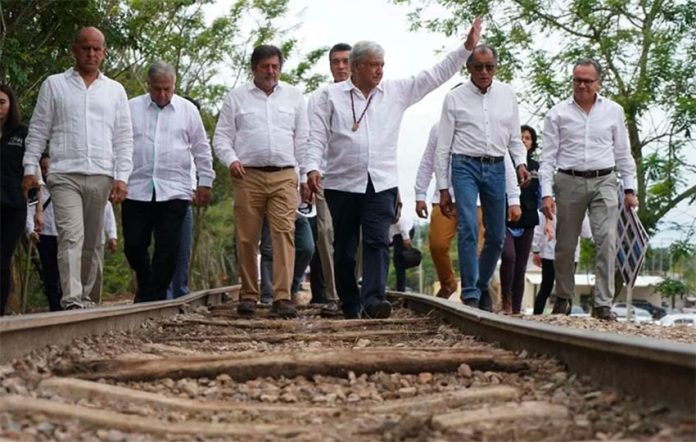Members of farming cooperatives in Quintana Roo want the federal government to clear longstanding debts before entering into discussions about ceding land for the construction of the Maya Train.
Ponciano Genaro Martín Esquivel, a member of the Felipe Carillo Puerto ejido, said that there are six cooperatives that are still waiting to be compensated for land that was expropriated for the construction of Highway 307 between Chetumal and Cancún.
The money owed to the ejidos dates back to the end of former president Ernesto Zedillo’s six-year term in 2000, he said.
According to the ejidatarios of the Xmabén, Chacchoben, Andrés Quintana Roo, Sun Yax Chen, Hazil and Felipe Carrillo Puerto cooperatives, the government owes more than 200 million pesos (US $10.4 million) in unpaid compensation.
Esquivel said that members of his ejido are not opposed to construction of the new railroad, which will run through five states in southeast Mexico. However, he added that they had sent a letter to President López Obrador to advise him that they will not continue negotiations to cede land until the compensation issue has been settled.
Esquivel said the chief of the National Tourism Promotion Fund (Fonatur), which is managing the Maya Train project, has indicated that the government wants between 300 and 500 hectares of Felipe Carrillo Puerto ejido land for construction of the railway.
Fonatur director Rogelio Jiménez Pons has acknowledged that the compensation issue needs to be resolved before negotiations can continue, adding that the agency he heads is working to that end.
“There are at least three cooperatives that are owed money although it’s the Secretariat of Communications and Transportation that has the debt. We are interested in the matter being resolved as soon as possible and are taking steps for that to happen,” he said.
Jiménez said that the cooperative members are within their right to demand the compensation, charging that they were treated unfairly by past federal governments.
Source: El Economista (sp)
